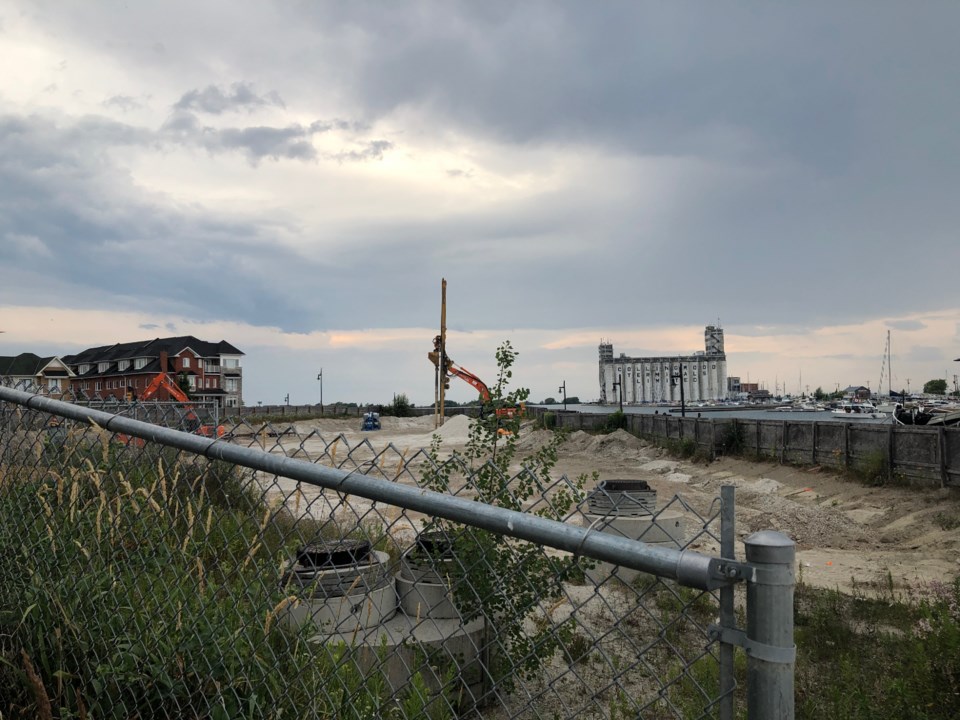Collingwood council will consider a phased-in option for the suggested 107 per cent increase in non-residential development charge rates.
The Strategic Initiatives Committee met Aug. 12 to discuss the new development charge rates once again. This year, Hemson Consulting has been preparing a background study and made recommendations for new development charge (DC) rates.
The committee opted to use the next five years to phase in the increase, bringing the rate from $68 per square metre to $142 per square metre by 2024 by increasing it by $14 per year beginning in 2020.
Since 2005, there has been a non-residential development charge rate freeze in effect. Essentially, that has meant a 50 per cent discount on development charges for commercial and industrial buildings.
“This is a common practice as the residential tax base, historically, was reliant on the commercial and industrial development as potential employment providers,” states a staff report presented to the committee.
Staff estimate a $7 million shortfall as a result of discounting non-residential development since 2005.
“In the Town of Collingwood’s 2018 five year capital budget, it was evident that significant shortfalls exist in the development charge reserves, which are largely thought to be the result of the discounting of the non-residential development charge rate since 2005,” states the staff report.
Development charges are collected to cover the cost of new capital projects or expansion of facilities to accommodate new growth in the town.
“When the existing tax base funds growth infrastructure, this violates the basic premise of fairness and the principle that ‘growth pays for growth,’” states the staff report, further adding the shortfalls in DC reserves have resulted in deferring projects or getting developers to front-end the costs of projects and paying them back over time.
By taking a phased-in approach, the town would still see a loss of about $1.1 million in non-residential DCs over five years when compared to simply increasing the non-residential rates immediately to $142 per square metre. Maintaining the current $68 per square metre rate would result in the loss of $2.4 million to the town over five years.
Initially, the discounted rates were intended to encourage commercial and industrial growth in Collingwood, or at least reduce the barriers to new non-residential building.
The economic conditions in town have changed, though.
“The retirement of the baby boomer generation, sky-rocketing GTA real estate prices, globalization, the world wide web, and telecommuting have all had significant impacts on the demographic trends in the town such that Collingwood’s residential sector is growing rapidly and is expected to continue to do so,” states the report.
The residential development charge increase is set at 22 per cent subject to council’s approval on Aug. 26.
However, staff reported a 107 per cent increase in non-residential DCs was “very significant.”
BMA Management Consulting Inc., a consultant in municipal finance and management hired by the town to do yearly financial health reports told the town in 2014, 2015, and 2016 Collingwood’s over-reliance on the residential tax base is an issue, and encouraged the town to strive for better balance.
Parkbridge Lifestyle Communities Inc. submitted a letter to the town calling the 107 per cent increase for non-residential development “enormous” and suggesting a phased-in approach would be fairer.
Parkbridge is in the process of obtaining a site plan agreement to start construction on its new national headquarters office at 70 Huron Street in Collingwood. That building would be subject to the non-residential development charge rates.
Georgian Triangle Development Institute and Alair Homes both wrote letters to the town suggesting the residential rate was also increasing too much, and the town should reconsider the list of projects included in the background study used to calculate the rates.
Adoption of the new DC rates - including the option of a phased-in approach for non-residential development is part of town council’s agenda on Aug. 26. The meeting begins at 5 p.m. in the town hall council chambers.


